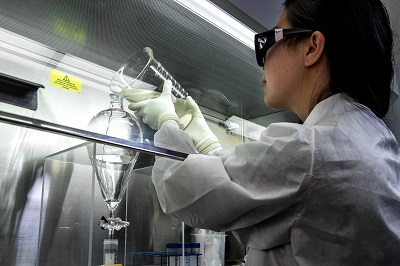After the approval of B-class medical device registration in Indonesia by the Ministry of Health (MOH) and BPOM, the manufacturer or authorized representative must adhere to several important post-registration requirements and obligations to ensure continued compliance with Indonesian regulations.
Here are key points to note after receiving the approval and Surat Izin Edar (SIE):
1. Post-Market Surveillance (PMS)
- Ongoing Monitoring: Once the device is approved and sold in the Indonesian market, the manufacturer is required to establish a post-market surveillance system. This involves monitoring the device's performance and safety in real-world settings.
- Collecting and analyzing data related to adverse events, device malfunctions, or complaints.
- Reporting any adverse events (e.g., injuries, device failures) to BPOM promptly, according to Indonesian regulations.
2. Adverse Event Reporting
- Timely Reporting: Any serious adverse events or product recalls must be reported to BPOM as soon as possible, typically within 10 working days. Failure to report can result in penalties or suspension of the device's registration.
- Adverse events could include injuries, illnesses, or any harmful effects caused by the device.
3. Device Labeling and Instructions for Use (IFU)
- Ongoing Compliance: Ensure that the device labeling and Instructions for Use (IFU) continue to comply with Indonesian regulatory requirements, especially with regard to:
- Labeling in Bahasa Indonesia.
- Any updates to warnings, instructions, or safety information that may arise from post-market experience.
4. Annual Renewal of Registration
- Renewal: The Surat Izin Edar (SIE) is valid for a specified period (usually 5 years). After this period, the registration must be renewed to maintain the marketing authorization.
- To renew the registration, the manufacturer must submit updated documentation, including post-market surveillance data and updated product information.
5. Changes to the Device
- Notifying BPOM of Changes: If there are any changes to the device (e.g., design, materials, intended use, manufacturing process), BPOM must be notified, and additional approval may be required. This includes:
- Device modifications or improvements.
- Changes to manufacturing processes or suppliers.
- Changes in labeling or instructions.
The device may require re-evaluation if substantial changes are made that affect safety, performance, or efficacy.
6. Distribution and Sales Compliance
- Authorized Distributors: Devices should only be sold or distributed through authorized distributors registered with BPOM. Ensure that the distributors comply with all regulations, including the correct labeling and storage conditions.
- Record Keeping: Maintain accurate records of sales and distribution within Indonesia to ensure compliance with regulatory requirements and facilitate any necessary inspections by BPOM.
7. Inspections and Audits
- BPOM Inspections: BPOM may conduct inspections of the manufacturing facility or conduct audits in the event of complaints, reports of adverse events, or random checks. Compliance with Good Manufacturing Practices (GMP) and other quality standards will be scrutinized.
- Audits of post-market surveillance systems, reporting, and product tracking may also be conducted to ensure continuous compliance.
8. Importation and Distribution Control
- Importation: If the device is imported, the importer must be registered with BPOM and must ensure the product complies with Indonesian import regulations.
- Importers should ensure that the product maintains regulatory compliance during transit and storage.
9. Ongoing Regulatory Changes
- Regulatory Updates: Keep up to date with any changes to Indonesian medical device regulations or standards issued by BPOM or the Ministry of Health. Regulatory changes may require modifications to your device, labeling, or documentation.
- BPOM often updates requirements, so it is crucial to stay informed about new regulations or guidelines related to medical devices.
10. Device Recall or Market Withdrawal
- Recalls: If the device is found to be unsafe or non-compliant with regulations, BPOM may request a recall. The manufacturer is required to cooperate in the recall process and may be subject to penalties if non-compliant.
- Market Withdrawal: In some cases, if a device is no longer safe or there are significant changes to its risk profile, the manufacturer may voluntarily withdraw it from the market.

Contact Us:
Whatsapp or Wechat:+86 15816864648;email address:hito.lin@grzan.cn
.png)
.jpg)

.png)

.png)